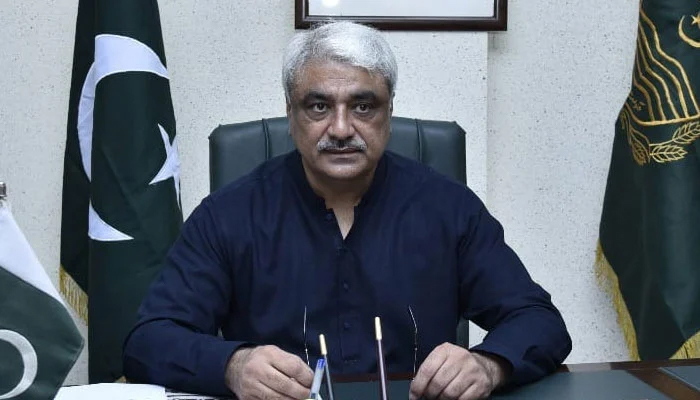Health Card scheme ‘to be improved’
LAHORE:Punjab Health Minister Khawaja Salman Rafique has reaffirmed the government’s commitment to ensuring that the health insurance programme benefits the common man.
‘We want to run the health insurance programme through a sustainable model,’ he stated while presiding over a meeting at the Punjab Health Initiative Management Company (PHIMC) on Friday.
During the meeting, the minister reviewed modern reform measures aimed at enhancing the efficiency and reach of the health insurance programme.He emphasised that the programme, which serves more than 120 million people in Punjab, will continue uninterrupted. He also highlighted that PMLN leader Nawaz Sharif initiated the health card with an experienced team, and efforts are ongoing to relaunch the programme in an improved form.
‘We are brainstorming day and night to launch the health card in a better format,’ said the minister.He further stated that the government aimed to ensure that the real benefits of the health insurance programme reach the common man, with plans to shift a larger portion of the health insurance programme from the private to the public sector.
This move, according to him, will enhance services in government hospitals.Addressing rumours about the discontinuation of the health card, the minister clarified that the programme is not being stopped.
Instead, improvements are being made to ensure free treatment for all diseases. He explained that the poor and middle-class citizens will receive free treatment through the health card, while wealthier individuals will be required to pay a premium.
Meanwhile, Health Minister Khawaja Salman Rafique reaffirmed the government’s commitment to ensuring the use of safe and clean blood in the treatment of patients in public hospitals across the province. He highlighted the importance of safe blood during a meeting on Friday, held to discuss the final draft of the National Transfusion Policy of Pakistan at the Department of Specialised Healthcare and Medical Education.
Chairing the consultation session, the minister reviewed suggestions and feedback on the draft policy. He stressed that providing safe blood to patients is a fundamental right and essential to achieving the mission of ‘Safe Blood for All’.
He also directed Medical Superintendents (MSs) of government hospitals to maintain strict cleanliness and hygiene standards in blood banks. The minister underscored the importance of collaboration and adherence to the highest standards to ensure the success of this initiative.
-
 Czech Republic Supports Social Media Ban For Under-15
Czech Republic Supports Social Media Ban For Under-15 -
 Prince William Ready To End 'shielding' Of ‘disgraced’ Andrew Amid Epstein Scandal
Prince William Ready To End 'shielding' Of ‘disgraced’ Andrew Amid Epstein Scandal -
 Chris Hemsworth Hailed By Halle Berry For Sweet Gesture
Chris Hemsworth Hailed By Halle Berry For Sweet Gesture -
 Blac Chyna Reveals Her New Approach To Love, Healing After Recent Heartbreak
Blac Chyna Reveals Her New Approach To Love, Healing After Recent Heartbreak -
 Royal Family's Approach To Deal With Andrew Finally Revealed
Royal Family's Approach To Deal With Andrew Finally Revealed -
 Super Bowl Weekend Deals Blow To 'Melania' Documentary's Box Office
Super Bowl Weekend Deals Blow To 'Melania' Documentary's Box Office -
 Meghan Markle Shares Glitzy Clips From Fifteen Percent Pledge Gala
Meghan Markle Shares Glitzy Clips From Fifteen Percent Pledge Gala -
 Melissa Jon Hart Explains Rare Reason Behind Not Revisting Old Roles
Melissa Jon Hart Explains Rare Reason Behind Not Revisting Old Roles -
 Meghan Markle Eyeing On ‘Queen’ As Ultimate Goal
Meghan Markle Eyeing On ‘Queen’ As Ultimate Goal -
 Japan Elects Takaichi As First Woman Prime Minister After Sweeping Vote
Japan Elects Takaichi As First Woman Prime Minister After Sweeping Vote -
 Kate Middleton Insists She Would Never Undermine Queen Camilla
Kate Middleton Insists She Would Never Undermine Queen Camilla -
 King Charles 'terrified' Andrew's Scandal Will End His Reign
King Charles 'terrified' Andrew's Scandal Will End His Reign -
 Winter Olympics 2026: Lindsey Vonn’s Olympic Comeback Ends In Devastating Downhill Crash
Winter Olympics 2026: Lindsey Vonn’s Olympic Comeback Ends In Devastating Downhill Crash -
 Adrien Brody Opens Up About His Football Fandom Amid '2026 Super Bowl'
Adrien Brody Opens Up About His Football Fandom Amid '2026 Super Bowl' -
 Barbra Streisand's Obsession With Cloning Revealed
Barbra Streisand's Obsession With Cloning Revealed -
 What Did Olivia Colman Tell Her Husband About Her Gender?
What Did Olivia Colman Tell Her Husband About Her Gender?




